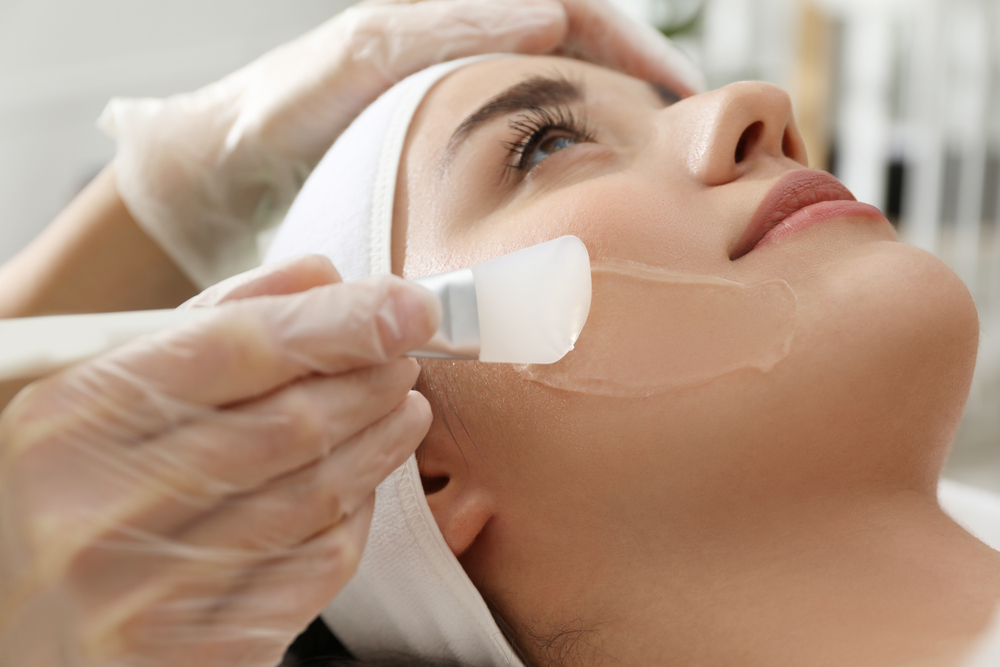How often do you find yourself wishing you could shed your skin like a lizard, just so you could enjoy the beautiful, undamaged skin underneath? Probably more than you’d like to admit, right?! Well, while you may not have the natural ability to do so (not as fast, at least), there are cosmetic procedures that can help you.
This cosmetic procedure is referred to as a medical chemical peel, and it is a resurfacing and exfoliation treatment that can remove your top layer of skin. Not only can these peels reduce facial imperfections like scars or acne, but they can also potentially diminish signs of aging. Deep chemical peels represent the popular option nowadays, as they can offer more dramatic results and a youthful and vibrant complexion.
What Are Deep Chemical Peels?
It takes about four weeks for your skin to renew itself. New cells are constantly made in the lower layer, and the old cells fall off as tiny flecks when you rub your skin. However, with chemical peels, this process is sped up as the renewal is done in about a week or two weeks.
That’s because a chemical peel involves applying a chemical solution on your face that causes the top of your skin to peel off. A deep chemical peel will use a stronger solution such as trichloroacetic acid or acetic acid (phenol), which fully penetrates your skin. This brings the fresh, undamaged cells to the surface, making your face look healthier and more youthful.
Benefits of Deep Chemical Peels
Deep chemical peels work by exfoliating your skin layer by layer, reaching deep inside your skin. When applied to the skin, it addresses all kinds of damage caused by the sun, age, and other harmful environmental elements. When the skin peels off, this will activate your body’s natural production of collagen while bringing healthier skin cells to the surface.
Overall, a deep chemical peel can help you with the following conditions:
- Skin laxity issues
- Deeper wrinkles
- Fine lines
- Acne spots
- Acne scars
- Skin discoloration
- Dull skin
- Skin texture issues (bumps, rough texture, dry patches)
Benefits can differ from one person to the other, but for the most part, those wrinkles that appear when your face is at rest can be reduced. This is why deep chemical peels are a good option when you want to diminish the signs of aging.

What to Expect After a Deep Chemical Peel
There are different degrees of recovery for each type of medical chemical peel. If you opt for a light chemical peel, you can return to your daily activities within a day. You can also apply makeup within two to three days after the procedure. However, more aggressive chemical peels go deeper into your skin, which is why you should avoid using makeup for the next 10 to 14 days.
Redness can occur for a couple of months after you get the chemical peel. You may eventually begin using makeup after two weeks have passed, but it’s important to cleanse your skin properly. Use a gentle cleanser and lukewarm water, and do not forget to use moisturizer. If you plan on going outdoors, you should use SPF50 sunblock, as your skin will be highly sensitive to UV rays.
During your recovery stage, you will notice a lot of peeling on your skin, which is natural. Redness and swelling are to be expected, along with a throbbing sensation or burning. It can take a few weeks for the swelling to go down completely. Make sure to follow Dr. Shaw’s instructions and don’t try peeling the skin yourself.
Results of a light to medium peel can last anywhere from one to six months, but for deep chemical peels, you will likely enjoy the effects for the next 10 years. They don’t usually require follow-up treatment and offer some of the most dramatic results.
Renew Your Skin With a Deep Chemical Peel
Medical chemical peels can be very efficient in reducing imperfections. Light peels can refresh your face, but if you want to go big, a deep chemical peel can offer more benefits. Contact Dr. Travis Shaw for a consultation and see if a deep chemical peel is right for you!
For more information about deep chemical peels and their efficiency, you can contact Dr. Travis Shaw, MD, at 804-775-4559. You can also use the provided online contact form, and Dr. Shaw will get in touch with you as soon as possible.


